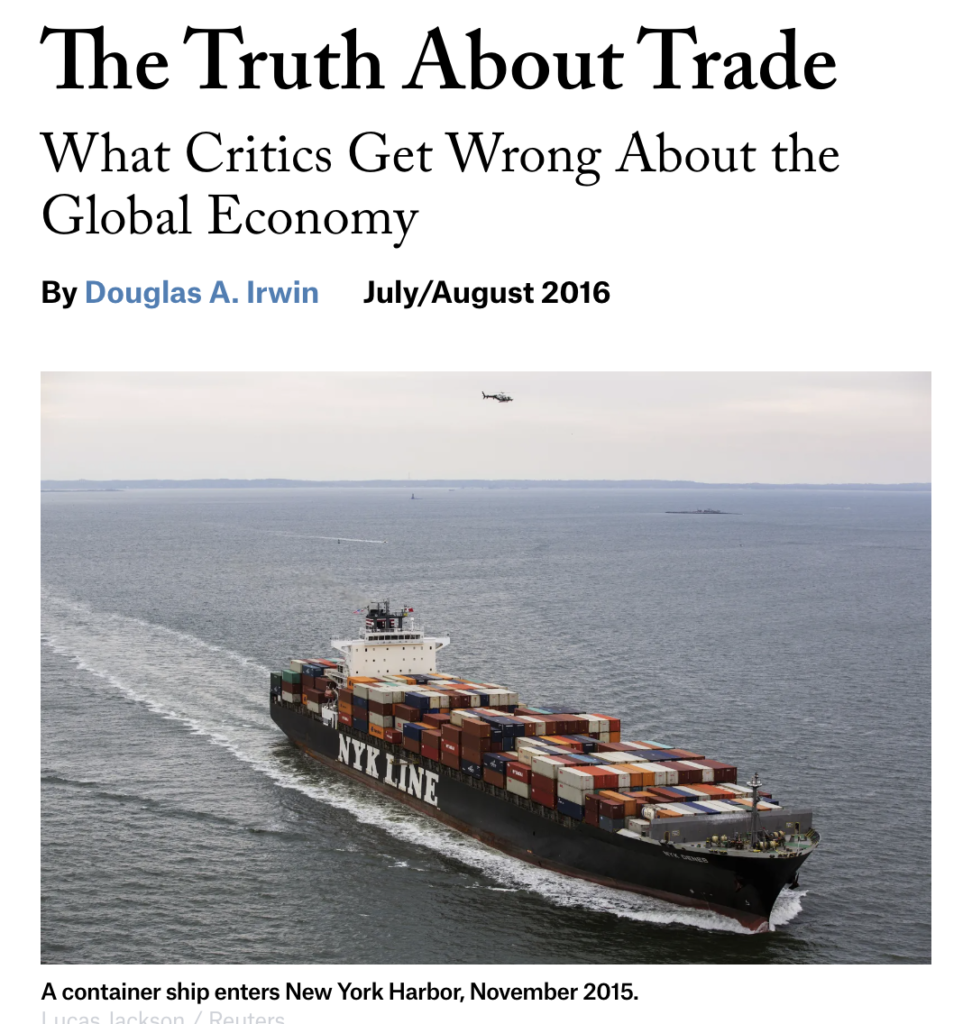Reforming US Import/Export Policies
The 2022-23 NCFCA team policy topic is: The United States Federal Government should significantly reform its import and/or export policy.
Congress has passed and the USFG administers a wide range of import and export policies. The resolution doesn’t say to significantly reform “one or more import and/or export policies,” which is good. That wording would, I think, allow way too many cases since there are way, way too many diverse, vague, and complex import and export policies and regulations. Importing orchids from Peru, for example, can be a criminal offense (as retiree George Norris discovered).
Reforming/sunsetting/ending the Jones Act, for example, would be a significant and beneficial change of USFG import and/or export policy. The Jones Act restricts commercial shipping of goods (and people) between US ports. So, for example, when food supplies, cars, or anything else is shipped from Asia to the U.S., ships are not allowed to offload cargo in Hawaii and then proceed to Los Angeles to offload the rest.
Similarly, ships exporting goods to Asia cannot stop in Hawaii on the way to offload cargo. Along the East Coast, ships from Europe can’t stop in Puerto Rico before heading to a mainland US port, and ships on their way to Europe similarly are not allowed to drop off supplies in Puerto Rico.
The Jones Act has a long history and is defended by concentrated interest groups (the now small US merchant marine industry), but raises costs as well as food and energy insecurity in Hawaii and Puerto Rico. Jones Act restrictions also contribute to trucking and traffic congestion along the US West and East Coasts (since barges are unable to operate, as they do in Europe, for example). See article and video: An arcane American law protected by powerful interests is causing insane traffic jams (Quartz, August 7, 2017)
For more see: What is the Jones Act? (Grassroot Institute, March 29, 2016) and Webinar: Grassroot Institute puts Jones Act on political front burner (July 30, 2020). Also: The Jones Act: A Burden America Can No Longer Bear (Cato Institute, June 28, 2018):
For nearly 100 years, a federal law known as the Jones Act has restricted water transportation of cargo between U.S. ports to ships that are U.S.-owned, U.S.-crewed, U.S.-registered, and U.S.-built. Justified on national security grounds as a means to bolster the U.S. maritime industry, the unsurprising result of this law has been to impose significant costs on the U.S. economy while providing few of the promised benefits.
Another significant policy change would be to reform or end the Bank of Boeing, (Export-Import Bank): New Export-Import Bank President Has Opportunities for Reform (CEI, 2/10/2022):
Reta Jo Lewis is about to become the next president of the Export-Import Bank. The Senate confirmed her nomination yesterday. Called Ex-Im for short, the bank seeks to boost U.S. exports by guaranteeing loans for buyers of U.S. aircraft and other goods. In many years, Boeing has been the beneficiary of as much as half of Ex-Im’s business. Around Washington, Ex-Im is informally known as the Bank of Boeing.
Many American Enterprise Institute (AEI) articles on Export-Import Bank reform here. Many others on Heritage Foundation site, including The Case Against the Export Import Bank (June 17, 2014).
On benefits of trade, here is conservative/libertarian conversation with Bill Kristol: Scott Lincicome: In Defense of Free Trade. And Cato Institute articles by Scott Lincicome here.
Past Economic Thinking posts on trade and trade policy here. And 2016 post: Free Trade: Spurring Two Centuries of Innovative Protectionist Arguments. Drawing from Foreign Affairs article by Douglas Irwin: The Truth About Trade:What Critics Get Wrong About the Global Economy.

